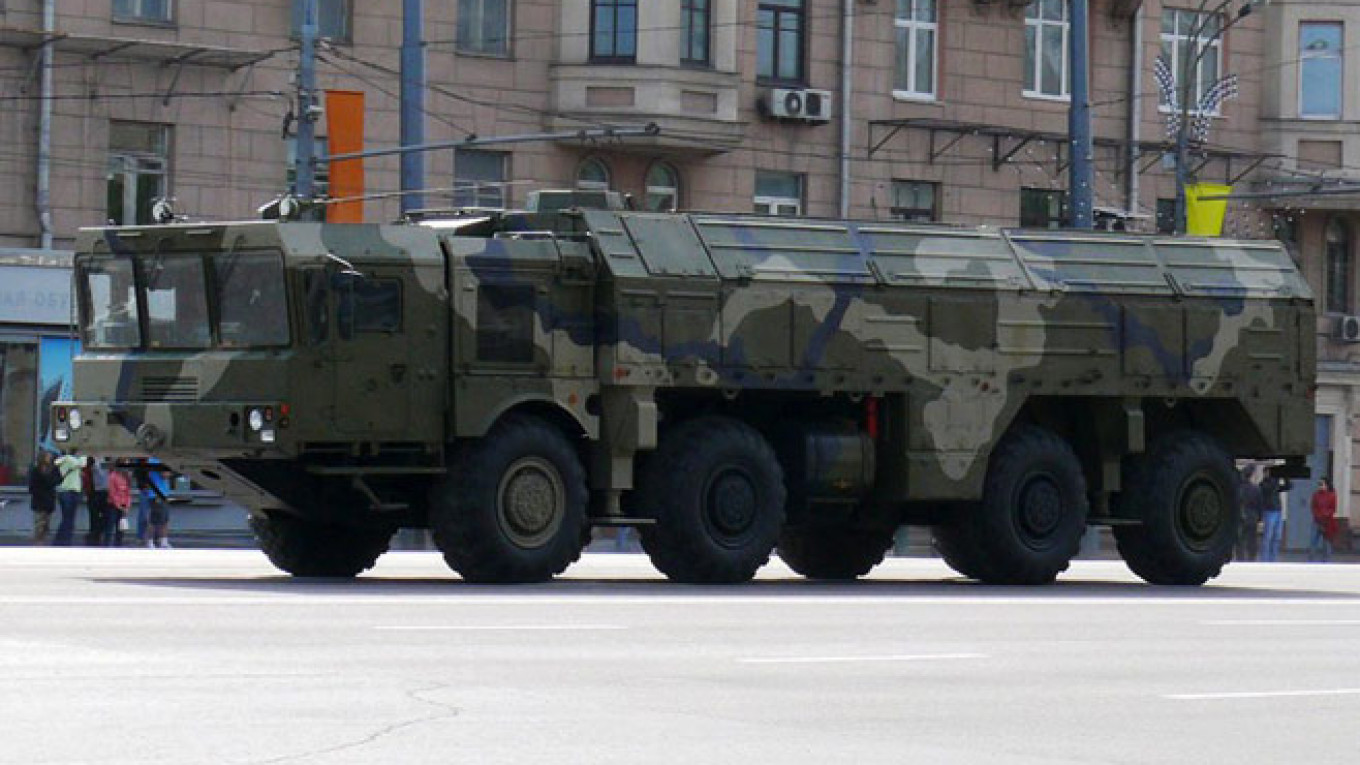Originally published by EurasiaNet.org.
Russia is negotiating with Armenia to supply the latter with advanced Iskander-M missiles, a potentially substantial boost to Armenian defenses against a potential Azeri attack. News about the ongoing negotiations was leaked to both the Armenian and Russian press, and the timing of the leak suggests an effort to tamp down anti-Russian sentiment in ongoing street protests in Yerevan.
"The contract isn't signed yet, negotiations are still continuing," a source "in the military-technical cooperation sphere" told Russian news agency TASS. A source "close to the ruling Republican Party of Armenia" told the same thing to Armenian newspaper Zhamanak.
The missiles could be acquired under a $200 million loan for arms purchases that Russia offered to Armenia last week and which Armenia's parliament ratified in an extraordinary session on July 2. "We are going to acquire weaponry of a new type, which until now has not been seen in the Armenian armed forces," said Ara Nazarian, Armenia's deputy defense minister, in reference the loan.
That loan was part of a series of concessions that Russia made to Armenia, including ceding to Armenian jurisdiction the case of a Russian soldier who killed seven members of an Armenian family. The news of the Iskander-Ms would seem to be yet another element of this effort to appease Armenian public sentiment.
One of the organizers of the #ElectricYerevan protests is treating the news as such, arguing that the $200 million loan and the handover of the Russian soldier was "to the credit of the people."
This isn't necessarily news: Last year, Armenian Defense Minister Seyran Ohanian hinted that Armenia was in talks to get the same kind of missiles from Russia, and that in "one or two years" Armenia would see big boosts in its military capacity. And talk is cheap, especially anonymous leaks at such a sensitive time in the bilateral relationship. So we'll see.
And Russia also has reportedly stationed Iskander-Ms at its base in Armenia, though obviously the missiles under Armenian control would give Yerevan the ability to use them however they saw fit; the missiles could be used to hit strategic infrastructure on Azerbaijan's coast if war broke out.
Azerbaijan hasn't officially reacted. However, an analysis on the website Trend says that the deal is likely to go through but calls it an "inexpensive sedative placebo" for the Armenian people. And it suggests that the move may be a means to get Azerbaijan to buy still more Russian weaponry: "Azerbaijan doesn't need loans and can buy what it needs, thereby assisting Russia's defense sphere with vital financial injections."
Originally published by EurasiaNet.org.
A Message from The Moscow Times:
Dear readers,
We are facing unprecedented challenges. Russia's Prosecutor General's Office has designated The Moscow Times as an "undesirable" organization, criminalizing our work and putting our staff at risk of prosecution. This follows our earlier unjust labeling as a "foreign agent."
These actions are direct attempts to silence independent journalism in Russia. The authorities claim our work "discredits the decisions of the Russian leadership." We see things differently: we strive to provide accurate, unbiased reporting on Russia.
We, the journalists of The Moscow Times, refuse to be silenced. But to continue our work, we need your help.
Your support, no matter how small, makes a world of difference. If you can, please support us monthly starting from just $2. It's quick to set up, and every contribution makes a significant impact.
By supporting The Moscow Times, you're defending open, independent journalism in the face of repression. Thank you for standing with us.
Remind me later.


